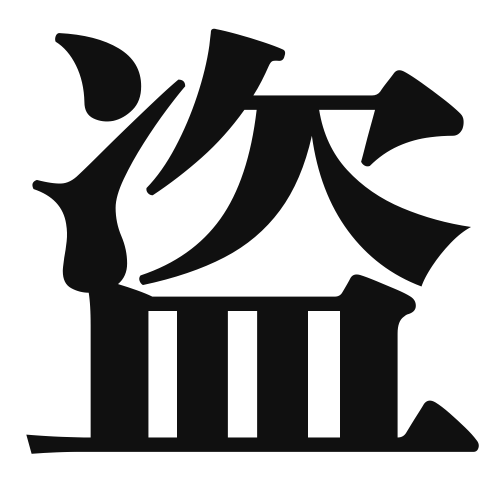1. Overview of Meaning
The kanji “盗” (pronounced “tou”) means “to steal” or “theft.” It refers to the act of taking someone else’s property without permission.
2. Formation and Radical
Formation of the Kanji: The kanji “盗” is a compound character that combines elements to convey its meaning. It consists of the radical “亻” (which represents a person) and the character “到” (which means to arrive or reach). Together, they suggest the idea of a person reaching for something that does not belong to them.
Radical: The radical of “盗” is “亻,” which indicates that the action involves a person.
3. Examples of Usage
Common Words and Phrases:
- 盗難 (とうなん, “tounan”) – theft, burglary
- 盗む (ぬすむ, “nusumu”) – to steal
Example Sentences in Daily Conversation:
- 彼は財布を盗まれた。 (かれはさいふをぬすまれた。) – He had his wallet stolen.
- 盗みは許されない。 (ぬすみはゆるされない。) – Stealing is not allowed.
4. Synonyms and Antonyms
Similar Kanji:
- 窃 (せっ, “setsu”) – also means to steal, but often implies a more secretive or stealthy act.
Antonyms:
- 与える (あたえる, “ataeru”) – to give, which is the opposite of taking or stealing.
5. Cultural and Historical Background
Relation to Japanese Culture: The concept of theft is significant in Japanese culture, where honor and respect for others’ property are highly valued. Stealing is often viewed as a serious crime.
Proverbs and Idioms:
- 盗人に追い銭 (ぬすびとにおいぜに, “nusubito ni oizeni”) – literally means “chasing a thief with money,” which implies that trying to recover stolen goods can lead to further loss.
